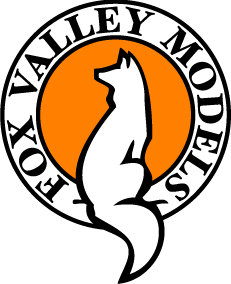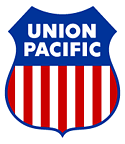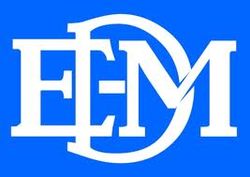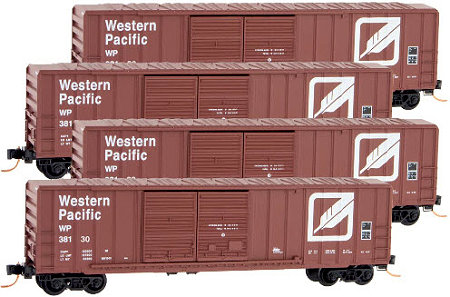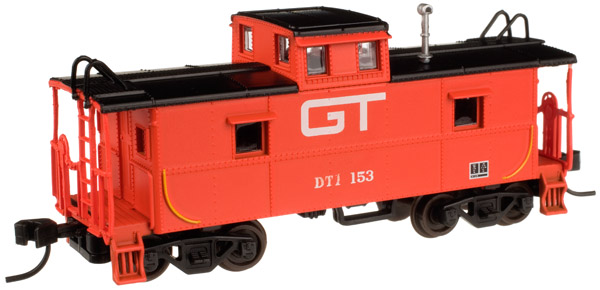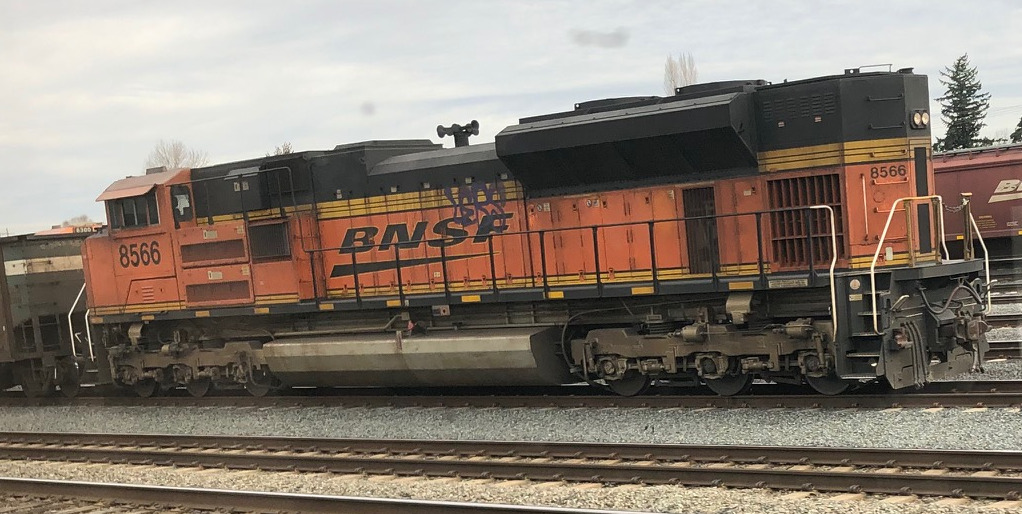Specific Item Information: New road numbers
- Era: 2008 to present
- Series 8621 to 8670; built 6-8/2008
- Fully-assembled
- Multiple road numbers
- Operating LED-illuminated front deck-mounted ditch lights
- Printed and LED-illuminated number boards
- Factory-applied detail parts: wire grab irons, 3-hose MU clusters, uncoupling levers, windshield wipers, sunshades, brake wheel, and more
- Tall snowplow with open doors
- Operating knuckle couplers – Micro-Trains® compatible
- Body mounted coupler box – accepts Micro-Trains® 1015/1016 type couplers without modification
- Walkway with front and rear anticlimber
- Diamond plate anti-slip walkway tread
- Nose door without window
- Front LED-illuminated headlight with lenses on low short hood
- EMD ISO cab
- Detailed cab interior with floor, rear wall, seats, and desktop
- Tinted cab side windows
- Early EMD inverter box
- Cab roof octagonal antenna dome
- Lost wax brass cast Nathan AirChime K5LLA horn mounted on engine cab roof
- LED-illuminated high mounted vertical rear headlight
- Fuel tank with single fills per side
- Motor with 5-pole skew wound armature
- Dual flywheels
- All-wheel drive and electrical pick-up
- Printing and lettering legible under magnification
- Operates on Code 55 and 80 rail
- Packaging safely stores model
- Minimum Radius: 9 ¾”
- Recommended Radius: 11”
- ESU-LokSound 5 Micro DCC & sound decoder with "Full Throttle"
- Cube-type Speaker
- Accurate EMD Prime mover and auxilary sounds, horn, bell, and more
- Operate on both DC and DCC Layouts
Model Information: Fox Valley introduced this model in 2014 with a second run in 2015. It is a modern split-frame locomotive with flywheels and other standard 3rd generation features. Specifically you will find:
Multiple Variations;
Front and Rear ditch lights;
High or Low Headlights;
Etched Metal Details;
Standard Cab;
Isolated Cab;
FVM's Sharp Paint and Lettering;
Wire Grab Irons;
Painted Handrails and Step Edges;
Correct Brass Horn .
The user-applied detail parts are a bit intimidating even for an intermediate modeler, but if you have the skills, you can make this model look awesome.
The user-applied detail parts are a bit intimidating even for an intermediate modeler, but if you have the skills, you can make this model look awesome.
DCC Information: Accepts NEM-651 plug-in decoder.
Prototype History: The EMD SD70 is a series of high-powered, single engined 4,000hp to 4,300hp, diesel-electric locomotives produced by Electro-Motive Division (EMD). All locomotives of this series are hood units with C-C trucks. Production commenced in late 1992 and since then over 4,000 units have been produced. The most produced models of the series are the SD70M, SD70MAC and SD70ACe models. All SD70 models were delivered with the self-steering radial truck HTCR , then from SD70ACe and SD70M-2 models, with non-radial HTSC truck. The radial truck allows the axles to steer in curves which reduces wear on the wheels and railhead.
The SD70ACe AC-traction diesel locomotive (most in the industry simply call them SD70 "Ace" or "Aces") is the successor to the older SD70MAC. It was first introduced in 2004, and has been in production since 2005. It was originally designed to comply with EPA Tier 2 locomotive emissions regulations. Beginning in 2012, newly built SD70ACe's were EPA Tier 3 compliant. SD70ACes are equipped with EMD's 16-710-G3C-T2 prime mover, rated at 4,300 horsepower (3,200 kW); later Tier 3 models are rated at 4,500 horsepower (3,400 kW). The model is still in production as EMD's primary long-haul domestic locomotive.
Although mechanically similar to earlier SD70 units, the SD70ACe rides on a new underframe and uses mostly new sheet metal above the frame. Electrical cables and air lines have been routed beneath the walkways on opposite sides, allowing easier access for maintenance. Continuing the designs of the SD80 and SD90 series, the radiator on the locomotive is nearly as wide as the cab, the center hood section is a step down below the roofline, and the dynamic brakes have been moved to the rear of the hood. The SD70ACe uses the cab design of late-model SD90MAC-H units, which uses rectangular window glass and is externally different from the two cab variations used on earlier SD70M and SD70MAC units. In 2008, EMD standardized the isolated cab on subsequent SD70ACes after non-isolated cab units were restricted from leading on BNSF Railway due to excessive cab vibration. Purchasers included ArcelorMittal, BNSF Railway, Canadian National Railway, CSX Transportation, Ferromex, Kansas City Southern Railway, Montana Rail Link, Norfolk Southern Railway, CVG Ferrominera Orinoco, Union Pacific Railroad, Quebec North Shore and Labrador Railway, BHP Billiton, and shortline Arkansas and Missouri Railroad.
Read more on Wikipedia, on American-Rails.com and on Locomotive wiki.
Full EMD SD70ACe data sheet on The Diesel Workshop.
The SD70ACe AC-traction diesel locomotive (most in the industry simply call them SD70 "Ace" or "Aces") is the successor to the older SD70MAC. It was first introduced in 2004, and has been in production since 2005. It was originally designed to comply with EPA Tier 2 locomotive emissions regulations. Beginning in 2012, newly built SD70ACe's were EPA Tier 3 compliant. SD70ACes are equipped with EMD's 16-710-G3C-T2 prime mover, rated at 4,300 horsepower (3,200 kW); later Tier 3 models are rated at 4,500 horsepower (3,400 kW). The model is still in production as EMD's primary long-haul domestic locomotive.
Although mechanically similar to earlier SD70 units, the SD70ACe rides on a new underframe and uses mostly new sheet metal above the frame. Electrical cables and air lines have been routed beneath the walkways on opposite sides, allowing easier access for maintenance. Continuing the designs of the SD80 and SD90 series, the radiator on the locomotive is nearly as wide as the cab, the center hood section is a step down below the roofline, and the dynamic brakes have been moved to the rear of the hood. The SD70ACe uses the cab design of late-model SD90MAC-H units, which uses rectangular window glass and is externally different from the two cab variations used on earlier SD70M and SD70MAC units. In 2008, EMD standardized the isolated cab on subsequent SD70ACes after non-isolated cab units were restricted from leading on BNSF Railway due to excessive cab vibration. Purchasers included ArcelorMittal, BNSF Railway, Canadian National Railway, CSX Transportation, Ferromex, Kansas City Southern Railway, Montana Rail Link, Norfolk Southern Railway, CVG Ferrominera Orinoco, Union Pacific Railroad, Quebec North Shore and Labrador Railway, BHP Billiton, and shortline Arkansas and Missouri Railroad.
Read more on Wikipedia, on American-Rails.com and on Locomotive wiki.
Full EMD SD70ACe data sheet on The Diesel Workshop.
Road Name History: The Union Pacific Railroad (reporting mark UP) is a freight hauling railroad that operates 8,500 locomotives over 32,100 route-miles in 23 states west of Chicago, Illinois and New Orleans, Louisiana. The Union Pacific Railroad network is the largest in the United States and employs 42,600 people. It is also one of the world's largest transportation companies.
Union Pacific Railroad is the principal operating company of Union Pacific Corporation (NYSE: UNP); both are headquartered in Omaha, Nebraska. Over the years Union Pacific Corporation has grown by acquiring other railroads, notably the Missouri Pacific, Chicago & North Western, Western Pacific, Missouri-Kansas-Texas, and the Southern Pacific (including the Denver & Rio Grande Western).
Union Pacific Corporation's main competitor is the BNSF Railway, the nation's second largest freight railroad, which also primarily services the Continental U.S. west of the Mississippi River. Together, the two railroads have a duopoly on all transcontinental freight rail lines in the U.S.
Read more on Wikipedia and on Union Pacific official website.
Union Pacific Railroad is the principal operating company of Union Pacific Corporation (NYSE: UNP); both are headquartered in Omaha, Nebraska. Over the years Union Pacific Corporation has grown by acquiring other railroads, notably the Missouri Pacific, Chicago & North Western, Western Pacific, Missouri-Kansas-Texas, and the Southern Pacific (including the Denver & Rio Grande Western).
Union Pacific Corporation's main competitor is the BNSF Railway, the nation's second largest freight railroad, which also primarily services the Continental U.S. west of the Mississippi River. Together, the two railroads have a duopoly on all transcontinental freight rail lines in the U.S.
Read more on Wikipedia and on Union Pacific official website.
Brand/Importer Information: Fox Valley Models is a small supplier of
model railroad and related products. FVM
started by finding solutions to different
challenges that model railroaders were
faced with. Our first products resulted
from a need to equip custom built
passenger cars with tinted windows made
of an ideal material; thin, flexible, easy to
cut, simple to install, available in multiple
colors and be affordable. We met those
needs and even included a frosted
version for the car's lavatory windows.
Other challenges inspired additional products including wooden grade crossings, trestles and different lineside structures. As our product line expands, input and requests from friends and customers help shape the product selection further.
Future products, under development, include more parts, structures, details and rolling stock. We strive to offer a good quality product at an affordable price.
Other challenges inspired additional products including wooden grade crossings, trestles and different lineside structures. As our product line expands, input and requests from friends and customers help shape the product selection further.
Future products, under development, include more parts, structures, details and rolling stock. We strive to offer a good quality product at an affordable price.
Item created by: CMK on 2022-08-12 23:43:46. Last edited by CMK on 2022-08-13 01:35:14
If you see errors or missing data in this entry, please feel free to log in and edit it. Anyone with a Gmail account can log in instantly.
If you see errors or missing data in this entry, please feel free to log in and edit it. Anyone with a Gmail account can log in instantly.



